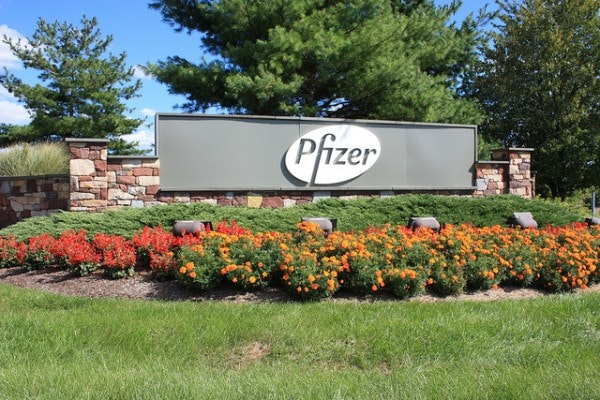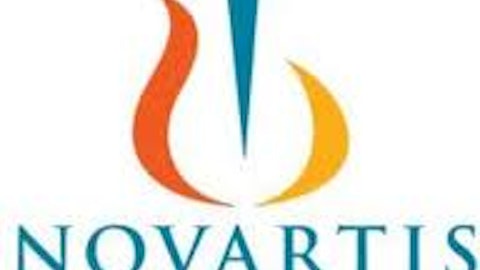One of the best places to be fully invested these days is pharmaceuticals.
Over the last year the biggest drug makers, like Pfizer Inc. (NYSE:PFE), Johnson & Johnson (NYSE:JNJ), and Novartis AG (ADR) (NYSE:NVS), which trades as an ADR here, are all up sharply. Novartis AG (ADR) (NYSE:NVS) is up over 30%.

But to hear the company’s PR tell it, the company is about to go down hard. The company is upset that it lost an appeal to re-patent Glivec, its leading cancer drug, by making it easier to tolerate. The country’s Supreme Court ruled, instead, that Indian generic makers could continue marketing their version of the generic. (The drug is sold in the U.S. under the name Gleevec.)
Novartis AG (ADR) (NYSE:NVS) said that, in response to the ruling, it would no longer invest in Indian research, but patent drugs developed elsewhere in the country.
What does all this mean for investors? Not as much as you may think.
The patent cliff
What it probably means is that leadership in this space may be about to return to the generics makers, which over the last six months haven’t been doing as well as the branded companies.
This would re-assert a pattern that had been in place since the 2008 Wall Street collapse, under which Actavis Inc (NYSE:ACT), formerly Watson Pharmaceuticals, is up 215%. While branded companies put their heaviest investment into scientists and studies, the generic companies are known for putting their big bucks into lawyers, who fight the branded companies’ efforts to protect patent protections in courts around the world.
Last month, for instance, Actavis settled with Astra-Zeneca and won permission to market a generic version of Crestor, that company’s statin drug. The deal includes payments to Astra-Zeneca during the remaining “pediatric exclusivity” but clears the way for U.S. approval of the generic. The company is also fighting in court to market a 1.62% testosterone gel. Top sellers include generic versions of Lipitor and Johnson & Johnson (NYSE:JNJ)’s ADHD drug Concerta.
The Actavis name came from a recent Swiss acquisition, which the board of the U.S. company liked so much they adopted it for their whole firm. Actavis has responded to the “patent cliff” – the expiration of many important patents over the coming years, including statins and anti-depressants, through an active program of acquisitions that have made it the third-largest generics maker in the world.
Generics makers have lower expenses than branded companies, but they also have lower sales. Competition among makers tends to quickly bring the price of a generic down to a level fairly close to its production cost. Actavis, for instance, had earnings of less than $100 million on sales of almost $6 billion last year. You buy this stock for growth. Actavis was less than half its current size, by sales, in 2009. Those are Amazonian numbers.
Buy branded for yield, generics for growth
Brand-name drug companies like Novartis AG (ADR) (NYSE:NVS), by contrast, are bought for yield. The company’s current dividend yields investors a fat return of 3.53% – that’s on top of a 28% gain in the stock price over the last 12 months. The company can afford to be generous – earnings per share came in last year at $3.89, against that dividend of $2.30/share.
In addition to Glivec, Novartis AG (ADR) (NYSE:NVS)’s big sellers include Diovan, a hypertension drug that has gone off-patent, and Gilenya, a drug for multiple schlerosis. But despite the losses from the patent cliff, Novartis AG (ADR) (NYSE:NVS) has a stellar pipeline of new drugs, including 14 of what it calls “blockbusters” which could get approval over the next four years. These include drugs to treat heart attack and psoriasis.
What makes a blockbuster is its general usefulness. Statins, which first came out in the 1980s, were blockbusters because most westerners have elevated cholesterol levels, because of their diet and a genetic makeup built on cold winter famines. Anti-depressants were huge blockbusters because almost everyone suffers from depression at one time or another.
In the case of Glivec, the company’s main patent expires in 2015, and the company hoped that a new patent would be granted for a new formulation. India’s refusal to do so means there will be generic competition in the developing world, and it remains to be seen what will happen in the west.
The legal fight, in other words, goes on. Drugs will keep falling off the patent cliff, Novartis will keep fighting to extend their life, but its pipeline means the company’s future, and future dividend looks bright.
Horses for courses
The drug business is not an either-or business, but an and business, in terms of your portfolio. Generic drug makers like Actavis have great growth prospects, but relatively small margins. Branded drug companies like Norvartis have great margins, produce a superior yield, and their pipelines bear regular watching.
The article Could Novartis Decision Bring Pharma Sector Rotation? originally appeared on Fool.com and is written by Dana Blankenhorn.
Copyright © 1995 – 2013 The Motley Fool, LLC. All rights reserved. The Motley Fool has a disclosure policy.


